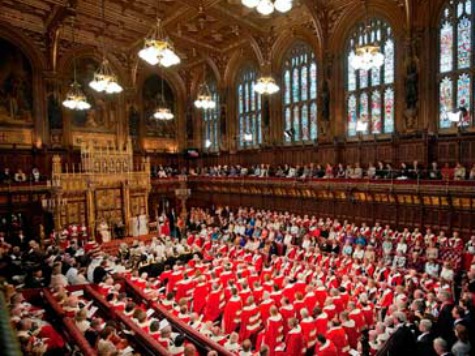
In an otherwise excellent piece for the Trending Central website, my good friend and colleague Alex Wickham states that had the UK Conservative Party “swallowed their pride” in 2012 and allowed for democratic reforms of Britain’s upper chamber to pass, they would not be encountered as much resistance from the Liberal Democrat coalition partners and would be able to pass bills such as the European Union Referendum Bill with greater ease.
However, the fact that David Cameron’s party does not jump to usurp the entire British constitution for the sake of opportunism is probably one of the last remaining reasons to continue referring to them as “conservatives.”
Yes, as a result, the Tory party lost the opportunity to re-balance the electoral districts (boundary reform) and give themselves a fairer shot at the next General Election. Yes, they may have scuppered their chances at delivering a referendum on European Union membership in 2017, further still leading them into electoral oblivion. But that they have the conviction to put country before party in this regard, or at least, constitution before party, is a greater sign than any other they have given, that they remain at heart, committed to Britain’s heritage.
I know a lot of my American friends can scarcely believe that Britain’s upper chamber remains, in 2014, unelected. I will not go into it here, but I stand by my position that the fetishisation of democracy as the sole arbiter of a free society is counter-intuitive to both conservatism and to a well functioning society. With Britain’s lower chamber (the one that does most of the work) being the representative half of the Houses of Parliament, I see no reason to introduce democracy and vested interested to the upper house.
“But the Lords is full of vested interests!” I hear some scream. And they’re completely correct. Purging personal or business interests from the Lords is about as likely as doing so from the Commons–impossible. But balancing the immature, careerist lower chamber with a house full of older, experienced experts is still an integral part of Britain’s constitution. To whittle that away for the sake of a Commons majority, or because it is a popular notion in the minds of the politically challenged public, is to me almost the preserve of a tyrant less concerned with our evolved checks and balances, and more concerned with a power grab. It is Morsi-esque.
Yes, there absolutely should be limits to party donor appointees to the Lords. Yes, there absolutely should be fewer peers. But at the crux of it, trading away constitutional bulwarks for a few more seats in the lower house, or the passage of a bill or two that is harder to pass, is a nothing but outright, almost treasonous vandalism.

COMMENTS
Please let us know if you're having issues with commenting.